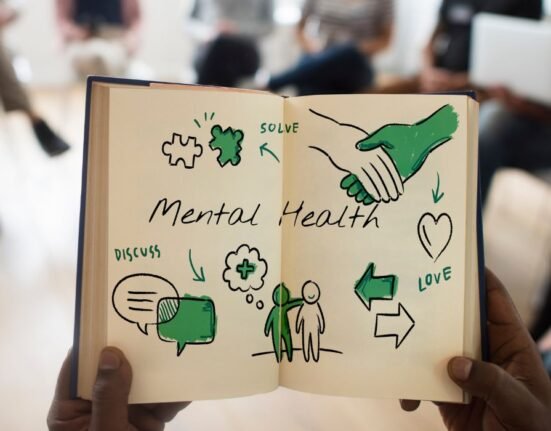COVID-19 has interfered with our daily lives beyond imagination. We are exposed to looming threats that are demanding our adjustment each day. With increasing pressure and heightened stress and anxiety, many are facing sleep problems or are seeing worsening of already existing ones. Irrespective of what condition you are in, good quality sleep continues to be a necessary and vital health practice.
Sleep occurs naturally for many, with an exception to one or two restless nights, but given the current scenario, we are seeing lots of people reporting sleep disturbances on a regular basis. Particularly when stressful events of life that are considered uncertain and uncontrollable, Insomnia (sleeplessness) or hypersomnia (excessive sleepiness during night or daytime) could be the outcome. These are the most prevalent and persistently occurring sleep problems I have witnessed among patients.
Unsatisfactory sleep is emerging as a serious health issue during COVID-19, which requires immediate recognition and intervention. In this article let me help you learn about the importance of sleep, its necessity, benefits and practices that promote good quality sleep.
Sleep and health
Sleep is extremely crucial to mental, emotional and physical health. In its proper dosage, it can revitalize body, mind and spirit. Improper sleep not only makes one tired and groggy but also interferes with his/her cognitive functioning. Sleep deprivation impairs attention, alertness, working memory, concentration, problem-solving, decision making and reasoning, eventually lowering your productivity at work and overall quality of life.
It is crucial to learn especially during this time, that sleep deprivation also has an adverse effect on immune functioning, making us more prone to respiratory tract infections and viral infections. Furthermore, chronic sleep loss can compromise the ability to secrete insulin which suggests a link between poor sleep and diabetes. Moreover, poor sleep is known to contribute to the risk for developing high blood pressure, high cholesterol, obesity, kidney disease, inflammation and cardiovascular diseases- regardless of age, weight or lifestyle habits.
In children sleep disturbances can lead to learning and memory problems, and if left unchecked into the adolescence, it can snowball into various physical health-related issues. According to a study conducted in Columbia University in the city of New York, poor sleep can increase lipid (cholesterol) levels and put them at higher risk for heart diseases.
Another study published in the Canadian medical association journal, found an association between sleep disturbance and cardiovascular risk in adolescents, as determined by high cholesterol levels, increased BMI [body mass index] and hypertension. These research findings indicate that sleep should be protected at every age and this should surely become a major concern for parents and caregivers.
On the mental health side, sleep is an integral part of emotional regulation, lack of sleep can leave your emotions in disarray, making you irritable, cranky, angry, moody, and sad. Additionally, people with insomnia are at higher risk of developing depression, generalized anxiety and exacerbate already existing symptoms of depression, anxiety, Bipolar disorder and Attention deficit hyperactive disorder (ADHD) in both children and adults.
A study at Columbia University and St. Roosevelt hospital found that people who were sleep-deprived were attracted to unhealthy/non-nutritious food choices than those who were not. Hence sleep deprivation can also cause a condition called ‘Emotional Eating’.
Being a health coach, I have seen hundreds of patients having slow metabolism, and facing difficulty shedding fat weight. Enquiring upon their sleeping habits, it was revealed that their sleep quality and duration was poor and insufficient, their sleep timings were erratic, and their sleep hygiene was significantly poor. Most of them disregarded the need for sleep and were unaware of its significance in relation to physical and mental health. In a sleep survey done in India on over 16,000 participants by wakefit.co in 2019 found that 52% people in India go to bed by 11 p.m. and 1 a.m. and 80% Indians feel sleepy at work 1-3 days a week. This is not a good news for sure.
Poor sleep hygiene leads to inadequate and poor quality sleep which as a result leads to above-mentioned health risks. Consider this as a best time to practice sleep hygiene in order to put your natural sleep cycle back to normal.
But the question is ‘What is sleep hygiene?’ let’s have a look
While the word hygiene brings up images such as brushing teeth, washing hands, grooming hair etc., it should be noted that sleep hygiene is quite different. It is actually a variety of practices, rituals and habits that are necessary to have good quality night time sleep and full daytime alertness.
The recommended amount of sleep especially in a lockdown situation:
An adult needs 7- 8 hours of uninterrupted sleep each night (too much or too little can increase the risk of cardiovascular problems). Infants however, need about 16 hours a day, while teenagers need about 9 hours. The deepest stage of sleep is where your brain and body starts to heal, repair and shed harmful toxins from the body. A research conducted by the National Institute of Neurological Disorders and Stroke showed that the space between brain cells increases during sleep, allowing it to flush out toxins that were built during waking hours. This also is a stage wherein your immunity gets healthier and liver begins to naturally detoxify itself. This is an extremely vital function that is needed to maintain a balanced amount of chemicals or hormones in our brain and body.
Indicators of inadequate sleep hygiene:
- Excessive daytime sleepiness
- Lethargy/fatigued most of the day
- Not feeling refreshed after waking
- Poor sleep latency, that is taking more than 30 minutes to fall asleep once into bed
- Frequent sleep disturbances, for instance, waking in the middle of the night more than once per night and finding difficulty falling back to sleep within 20 minutes
- Mood swings, Emotional eating
- Yawning (relying on caffeine to get through the day)
- Forgetfulness or inability to concentrate
- Falling ill frequently/ poor immunity
Train your brain to sleep well: Practice sleep hygiene
- Make restful sleep a priority in your life: Block out 7 hours for undisturbed, refreshing sleep. Make it a vital part of your lifestyle. Try using, if necessary, sleep-aiding accessories like black curtains, earplugs, eye masks to occlude noise and light around you.
- Maintain a regular sleep-wake schedule (Yes! even in a lockdown situation): Sleep at the same time every night and wake up at same time every morning, even on weekends. Repeat this for few weeks without interruption/break. Remember, consistency is the key! This shall surely set your circadian rhythm (internal biological clock) into normal functioning mode. Also, follow a relaxing monotonous bedtime routine to indicate body that it is closing bedtime.
- Do not oversleep: Given the lockdown condition, most of us have nothing much to do, and with halted daily routine, we tend to not wake up at usual designated time in the mornings. The advice is to keep an alarm and wake at your usual work timings, this activity aids your biological clock and in order to recognize whether you slept well, just notice your energy levels and mental freshness, if you feel physically reenergised, if yes- then you have slept well.
- Get sunlight throughout the day: Try to stay in a well- ventilated and well-lit area, sunlight is known to be a natural stimulant for circadian rhythm.
- Avoid naps during the day: Frequency of napping might increase while you are at home all day, boredom and laziness might sink in. Know this- napping during daytime does not compensate to night-time sleep, but short 10-30 minute power naps around 1-3 pm should help you regain mental freshness and energy levels. Longer naps however, can cause a condition called ‘sleep inertia- a groggy and numb feeling which you find hard to shrug off.
- Keep your bedroom clean, and cool: Cleaning and disinfecting your environment is specifically important during virus spread. It is an excellent measure to protect yourself and family and also to reduce the risk of infection. Streamlining your sleeping zone keeps mental stress away. Removal of dust particles from bed keeps indoor air quality healthy and prevents any allergic reactions at night which might disturb your sleep. Additionally, keep bedroom slightly cool, as this helps the temperature in the brain to drop, ensuring a good sleep latency.
- Keep bed for sleep and sex! : Avoid bringing your cell phone or laptop to bed, keep the gadgets away an hour before bedtime. Abstain from reading intriguing novels/books/late night movies as these might awaken your imagination and keep you up most of the night. Also do not check emails and please switch off the notification alerts in your cell/laptop and do not attempt to complete the pending daytime works before or ON the bed.
Keeping away from electronics (especially blue light emitting gadgets) boosts the sleep hormone named ‘Melatonin’, this hormone facilitates sleep and is inhibited by bright light. The bombardment of COVID news bulletins, images and stream of bad news on various news channels and social media platforms seems to be causing fear of unknown and health anxiety, watching them just before bed is definitely not advisable.
- Do not eat on bed, you do not want to be ‘carried’ away by insects, although it is a scene your spouse is definitely going to enjoy.
- Abstain from heated arguments and stimulants: Emotionally charged activities (this doesn’t include sex, as sex is known to reduce stress and improve sleep quality) have a strong capacity to ruin your quality and duration of sleep and also negatively affect relationships.
Shun intake of stimulants such as caffeine, nicotine, alcohol, chocolates and soft drinks post sunset. Stimulants hamper deep sleep, leading to broken or fragmented sleep and restlessness.
- Do not stay lying awake in bed for long: If you find difficulty in falling asleep within 30 minutes of getting in bed or you have woken up and are unable to fall asleep, try moving to another bed or room, meditate for a while, and return to bed only when you are sleepy, avoid checking cell phones during this time. This change helps in forming a new association with bed, indicating bed as a place to sleep and rest rather than staying awake.
- No large meal intake before bed: Try to eat a light dinner which is rich in proteins, 2-3 hours before bedtime, give your body the time to settle down. Many people report of heartburn and other gastrointestinal symptoms that interfered with their process of falling or staying asleep. Excessive water intake too during night disrupts sleep for obvious reasons.
- Exercise: Sedentary lifestyle is associated with poor quality sleep, it is high time we invest our time in some form of exercise at least thrice a week, even if it is 15-20 minutes of cardio or strengthening exercise. Brisk walking, cycling, swimming, or even playing your favourite sport has its mental and physical benefits and has positive effect on sleep quality. It might surprise you to know, even household chores like mopping, cleaning kitchen or bathroom, vacuuming, cooking, doing laundry, weeding/gardening and car washing can activate muscle groups in your body and may burn as many calories as a routine workout. Furthermore, Perspiration gets toxins of the system effectively.
Note: Avoid high-intensity exercises close to bedtime as it might put body into active mode, instead try yoga, deep breathing exercises or relaxation exercises like progressive muscle relaxation (systematic tensing and easing of every major muscle group) and guided or mindfulness meditations.
- Keep stress and worries at bay: Anxiety and stress can potentially cause insomnia. Whenever you feel excessively worried or anxious, write down the thoughts into a sleep dairy, this relieves the tension. Anxiety is as contagious as COVID 19, try to stay away from people or groups (online or offline) who spread anxious thoughts. Note: Talk to your therapist if problem persists.
Moreover try eating magnesium-rich foods in dinner or before bedtime, magnesium is a natural muscle relaxant, it also aids in reducing anxiety and stress. Including foods like fish, oats, dark green vegetables, almonds, bananas, warm milk, cherry juice, and pumpkin seeds can be particularly helpful. You can also try chamomile herb tea an hour before bed. It is completely caffeine-free and aids in relieving anxiety. It is also a mild sleep inducer, helping nerves and muscles to prepare for a good night’s sleep.
Getting sufficient sleep is absolutely imperative, given the current situation; we need to be our best versions of ourselves in terms of health (both physical and mental). Sleep is not something you do only on weekends or holidays, it is a gift which you are obliged to give to your body and brain every single night (With an exception to a day or two bad ‘sleep’ nights, which happens to all of us). Getting good quality sleep is one of the first steps to improve immunity, well- being and resilience. I wish you all the best, stay safe, and sleep peacefully.
“Your future depends on your dreams, so go to sleep.’ – Mesut barazany
Finally let us sum up the benefits of getting regular good quality sleep:
- IMPROVED IMMUNE FUNCTION
- Efficient digestive system
- Prevents cardiovascular diseases
- Improved energy levels, both mental and physical
- Healthy skin and hair quality (This should be particularly pleasing to young girls and women)
- Increased attention , focus , sharp memory, retention and concentration (helps you ace in your exams)
- Removal of toxins from body and brain
- Enhanced positive feelings such as happiness, joy, good will, confidence and optimism.
- Increased work efficiency and productivity (Surely makes your boss get positive feelings)
- Decreased anxiety and physical restlessness
- Last but not the least, alleviates symptoms of mental health issues.












Leave feedback about this